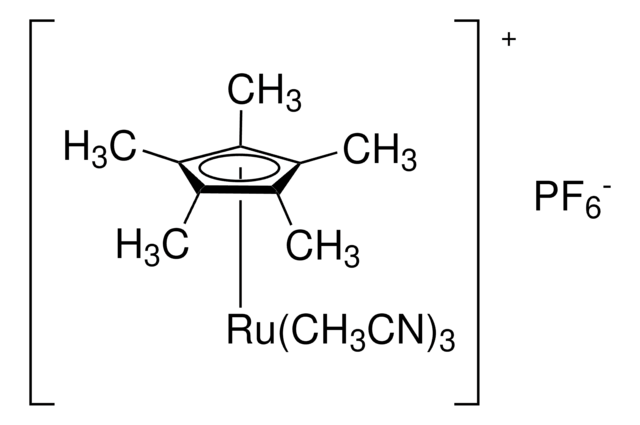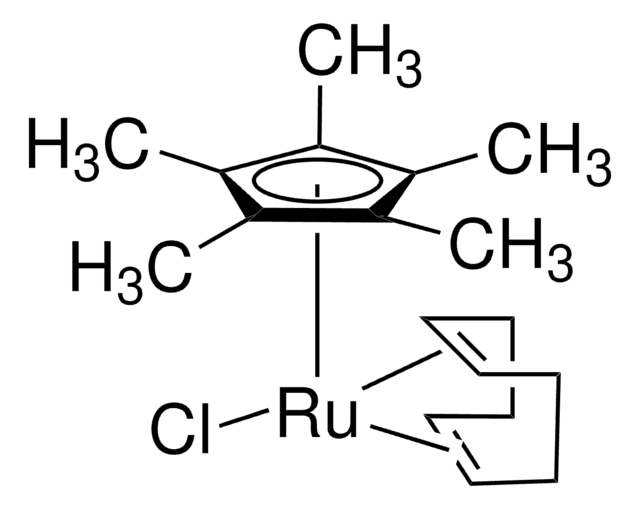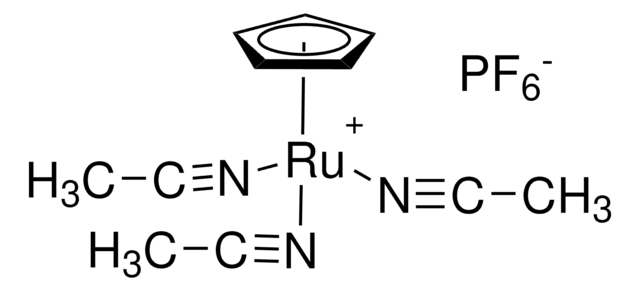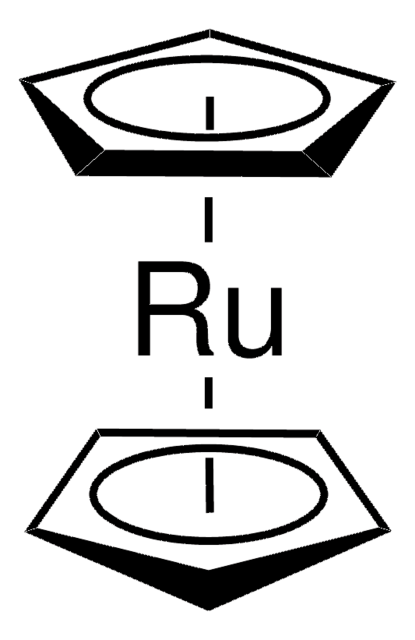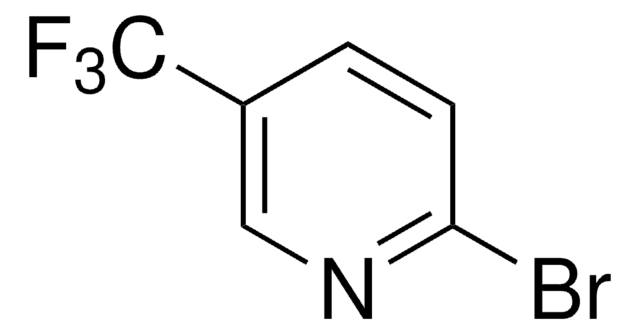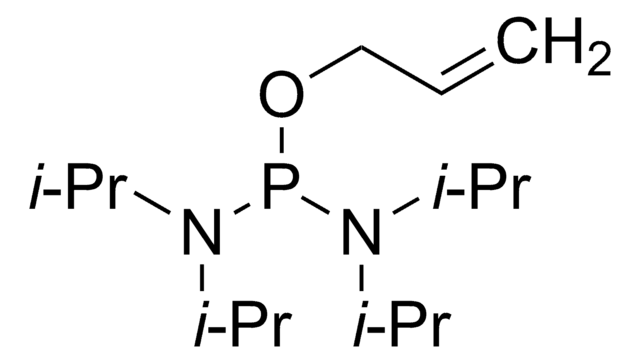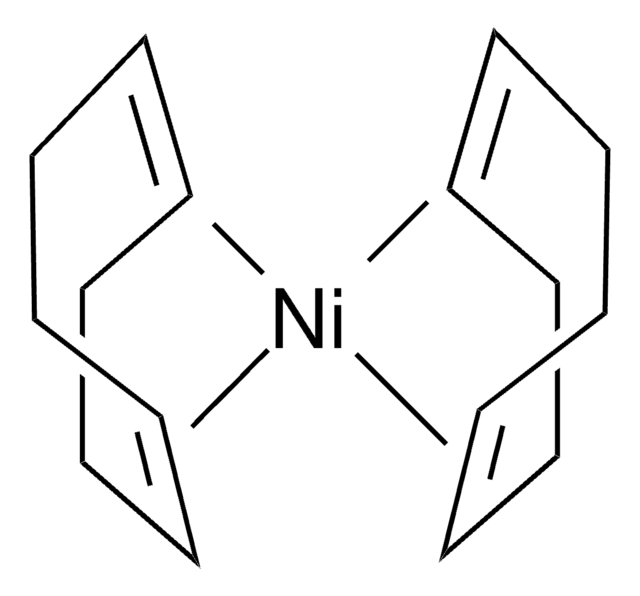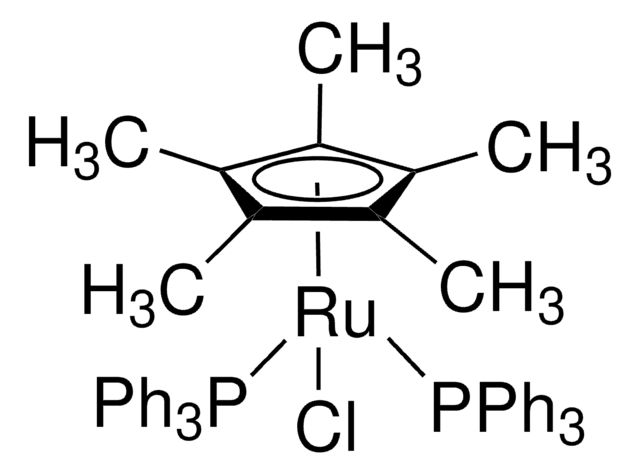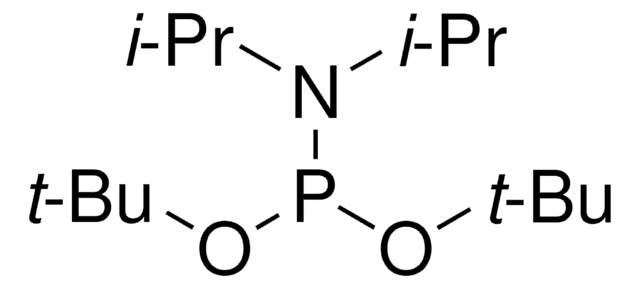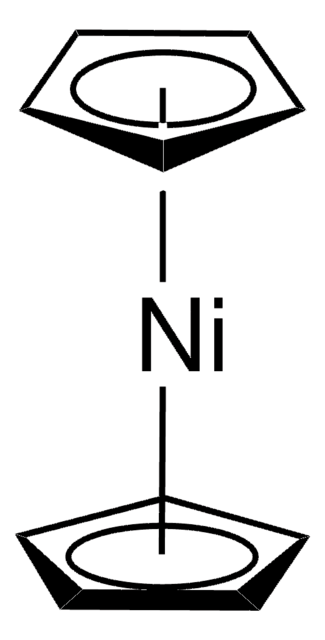902144
[(Cp)Ru(η6-naphthalene)]OTf
≥95%
Synonym(s):
(η5-Cyclopentadienyl)(η6-naphthalene)ruthenium(1+) trifluoromethanesulfonate
Sign Into View Organizational & Contract Pricing
All Photos(3)
About This Item
Empirical Formula (Hill Notation):
C16H13F3O3RuS
CAS Number:
Molecular Weight:
443.40
UNSPSC Code:
12352101
Recommended Products
assay
≥95%
form
powder
reaction suitability
reagent type: catalyst
reaction type: C-C Bond Formation
mp
112-116 °C
storage temp.
2-8°C
Application
Stable precursor for synthesis and ruthenium catalysis. It was also used by the Ritter lab to synthesize an Fmoc-protected ruthenium tyrosine for subsequent incorporation of the [18F]fluoride radiolabel into polypeptides.
Other Notes
Site-Specific Deoxyfluorination of Small Peptides with [18F]Fluoride
Comparison of the Catalytic Activity of [(5-C5H5)Ru(2,2′-bipyridine)(L)]OTf versus [(5-C5H5)Ru(6,6′-diamino-2,2′-bipyridine)(L)]OTf (L = labile ligand) in the Hydrogenation of Cyclohexanone. Evidence for the Presence of a Metal–Ligand Bifunctional Mechanism under Acidic Conditions
Arene Exchange in the Ruthenium-Naphthalene Complex [CpRu(C10H8)]+
Comparison of the Catalytic Activity of [(5-C5H5)Ru(2,2′-bipyridine)(L)]OTf versus [(5-C5H5)Ru(6,6′-diamino-2,2′-bipyridine)(L)]OTf (L = labile ligand) in the Hydrogenation of Cyclohexanone. Evidence for the Presence of a Metal–Ligand Bifunctional Mechanism under Acidic Conditions
Arene Exchange in the Ruthenium-Naphthalene Complex [CpRu(C10H8)]+
Related product
Storage Class
11 - Combustible Solids
wgk_germany
WGK 3
flash_point_f
Not applicable
flash_point_c
Not applicable
Choose from one of the most recent versions:
Certificates of Analysis (COA)
Lot/Batch Number
Don't see the Right Version?
If you require a particular version, you can look up a specific certificate by the Lot or Batch number.
Already Own This Product?
Find documentation for the products that you have recently purchased in the Document Library.
Jens Rickmeier et al.
Angewandte Chemie (International ed. in English), 57(43), 14207-14211 (2018-09-07)
Radiolabeled receptor-binding peptides are an important class of positron emission tomography tracers owing to achievable high binding affinities and their rapid blood clearance. Herein, a method to introduce a 4-[18 F]fluoro-phenylalanine residue into peptide sequences is reported, by chemoselective radio-deoxyfluorination
Our team of scientists has experience in all areas of research including Life Science, Material Science, Chemical Synthesis, Chromatography, Analytical and many others.
Contact Technical Service